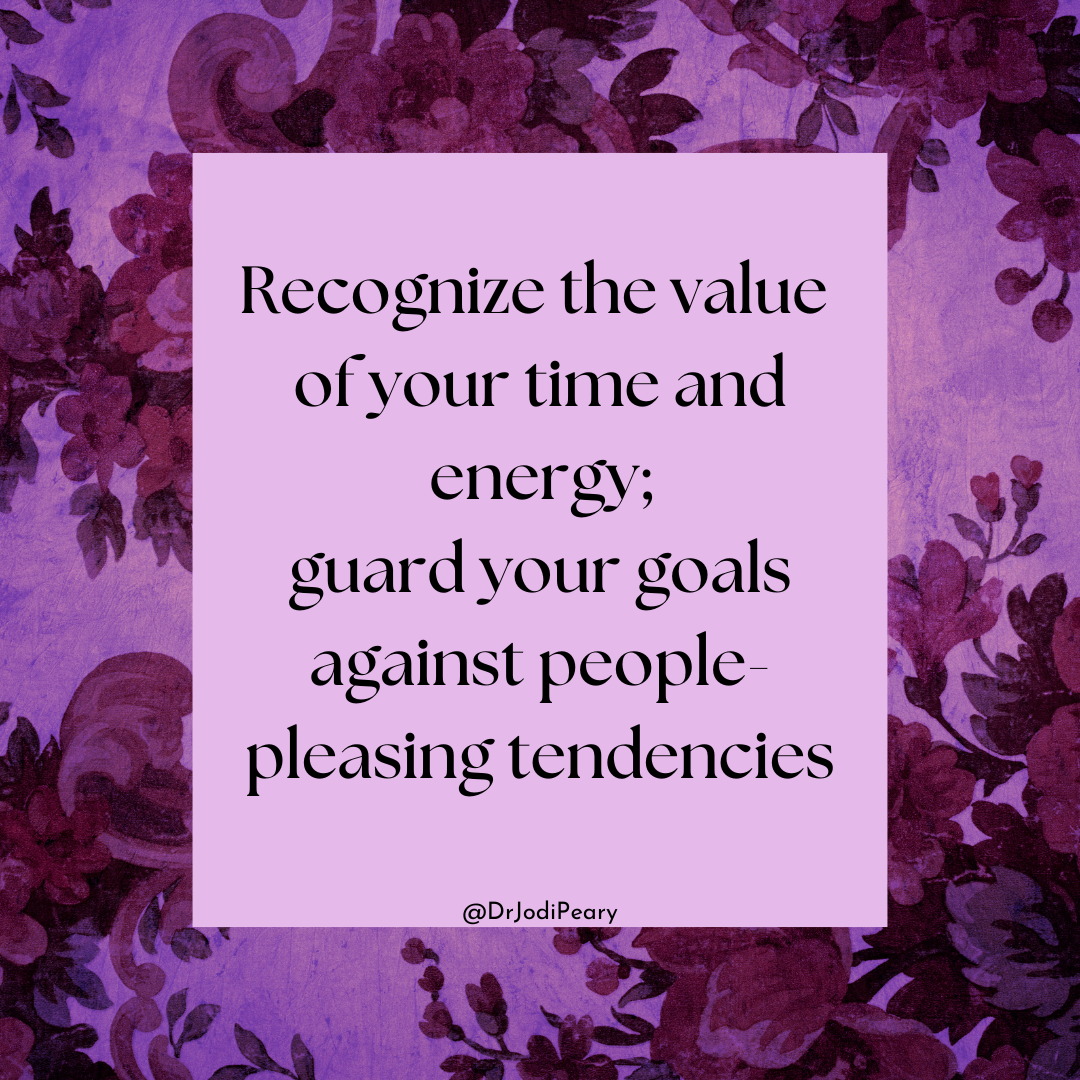People Pleasing: The Pain From Compromising Who You Are
Ally shared, “I can’t tell you what I want. I don’t know what I want for me.
“I am so tuned in to what everyone else might need from me that I don’t remember how to figure out what I want. Even worse, I don’t know how to care about what I want. If the people I care about are happy, that’s what I want and I just stop there. The problem is now I am 45 and totally unhappy. I don’t know how I got here.”
Marta loves her work and being around people who appreciate her. She is a psychiatrist who works at a clinic for low-income individuals with serious mental illness. While the job is taxing physically, Marta feels she is living her purpose when she is at work. Her life is not being wasted as she so often fears when she is away from work. Marta feels empty when she is not at work. Marta’s husband is distant and Marta spends loads of time and energy engaging in activities he likes in order to feel like she has a shared life with him. Together they watch premier league soccer and boxing when they are home together. Marta’s husband is not interested in the leisure activities Marta loves such as going for long walks and cooking. Marta has stopped her week-end hikes and begun to pick up pizzas or wing orders on week-end nights. They eat and watch tv together. These evenings with her partner feel very lonely for Marta. The patterns Marta has begun living outside of work have left her feeling she lives for work. Marta longs for Monday morning. Outside of work, Marta feels empty. She dreads going home after work. The week-ends and holidays are a constant source of stress.
If a relationship is leaving you feeling stressed or unsure, it may be because you feel you have to compromise on your values or give up some of what you feel makes you who you are at your core in order to maintain the relationship. Relationships involve giving and receiving. All relationships require some compromise in order for them to work. However, resentment and feelings of stress may be a sign that that there is an unhealthy balance between acceptance and compromise. When it comes to certain core values, compromise isn’t a healthy option. It is important to look inward to see if you are compromising on a value that is too important for you to release.
Mina values autonomy in making decisions about her healthcare. Her partner has been weighing in on her decision to be be vaccinated and believes she would be wrong to get any vaccinations. Mina struggled with what she was going to do but then decided to get vaccinations and later lie to her partner about doing so. Mina went further and suggested she agreed with their position rather than being up front about her opinion and her choice for herself. In some ways, Mina gave up that value of autonomy to have and make her own choices about her healthcare in order to help her partner feel they are more in control. Even though she honored her autonomy by following her value and getting the vaccine, when choosing to lie about getting the vaccine she felt a lot of stress. Ironically, the reason she chose to lie was to avoid the stress of disagreeing, To keep a pseudo peace with her partner she created stress for herself internally by compromising on this important value of autonomy with regard to her healthcare decisions. When we make ourselves uncomfortable so that others will feel more comfortable, we create internal stress and resentment.
Another way people pleasing discomfort shows up is in feelings of distraction. Feeling distracted is a way many of us learned to cope in our families of origin with a situation where our needs were seen as unimportant. When in our families of origin our needs were deemed unimportant we may have coped by distracting ourselves. Now we can notice when we feel distracted and ask ourselves why this feeling may be coming up.
Finding ourselves jumping into fix-it mode whenever we sense someone is unhappy or uncomfortable is another clue people-pleasing may be impacting our well-being. If this resonates with you the next time you find yourself scrambling to help someone else feel better slow down and pay attention to your own experience in the moment. Is another person’s discomfort lodged in your body as your own? Do another person’s issues feel like your issues? Do you need to help them in order to feel good yourself? Are you ‘outsourcing’ how ok you feel to how they are feeling?
In therapeutic coaching and in mindfulness practice we can learn how to come back to ourselves and to stop allowing our own sense of calm to be guided by other people’s moods.
“We can learn to ask, ‘What do I feel? What do I want? What works for me?’ We can learn to base our choices and decisions on that which is true for ourselves.”



